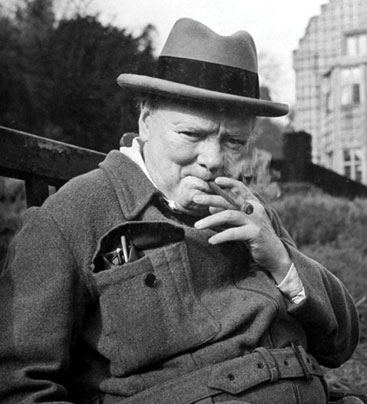“THE RIVER WAR” RETURNS
Have you ever read Winston Churchill’s second book, THE RIVER WAR, complete and unabridged?
Well, you’re not alone; few have.
But now, you can.
The return of The River War is pretty big news here in our little Churchillian nook. First published in 1899, THE RIVER WAR: An Historical Account of the Reconquest of the Soudan was originally a two-volume tome in which the 24-year-old Churchill delivered a brilliant history of British involvement in the region, as well as a devastating indictment of the ruthless campaign for its reconquest — a campaign that Churchill had fought in and significantly disapproved of. This disapproval got him in a lot of trouble, particularly among the generals he criticized, especially the then-Sirdar (Commander-in-Chief) of the Egyptian Army, Herbert Kitchener. As a result, Churchill abridged The River War substantially for a subsequent 1902 one-volume edition. Every edition of the book published since has reproduced this expurgated text.
For about as long as Chartwell Booksellers has existed, the scholar James Muller has been laboring over an annotated, unabridged reissue of the original two-volume River War. At last, after publishing peregrinations that Winston Churchill himself would have commiserated with, a crisp new two-volume edition of The River War has landed on our doorstep. (You can buy your copy HERE.)
The writing remains so strikingly vibrant (especially the restored disapproving stuff), that we are currently planning a reading of The River War with the marvelous actor Daniel Gerroll.
More on this next month. For now, let us leave you with a sample of Churchill’s terrifyingly timeless eloquence from The River War:
“All great movements, every vigorous impulse that a community may feel, become perverted and distorted as time passes, and the atmosphere of the earth seems fatal to the noble aspirations of its peoples. A wide humanitarian sympathy in a nation easily degenerates into hysteria. A military spirit tends towards brutality. Liberty leads to license, restraint to tyranny. The pride of race is distended to blustering arrogance. The fear of God produces bigotry and superstition. There appears no exception to the mournful rule, and the best efforts of men, however glorious their early results, have dismal endings, like plants which shoot and bud and put forth beautiful flowers, and then grow rank and coarse and are withered by the winter. It is only when we reflect that the decay gives birth to fresh life, and that new enthusiasms spring up to take the places of those that die, as the acorn is nourished by the dead leaves of the oak, the hope strengthens that the rise and fall of men and their movements are only the changing foliage of the ever-growing tree of life, while underneath a greater evolution goes on continually.”



